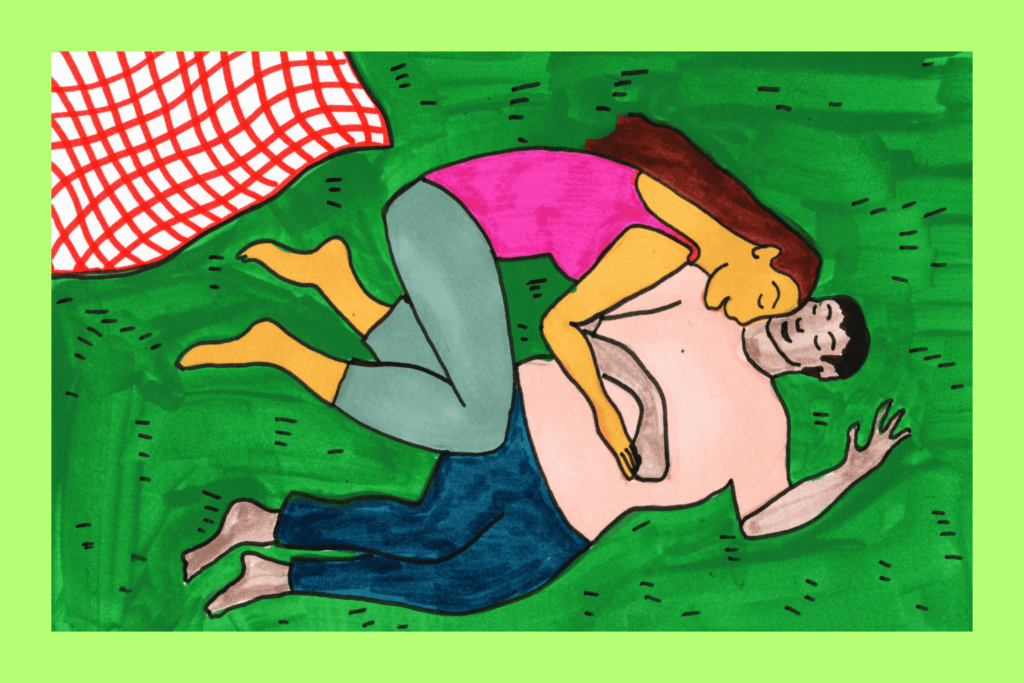Most young people in the UK will know that alcohol plays a large role in sex and dating. Sometimes, it’s a basic question of where to go with – or meet – someone. Thanks to our wet springs and unreliable summers, an ice cream in the park or a nice bike ride is out of the question for a great portion of the year. Smaller towns are rather lacking in their offering of activities. As a result, many daters rely on cosy pubs or loud, bright clubs to find potential partners. In these spaces, alcohol is an expected addition to any partnership.
In 2020, the Covid-19 pandemic brought with it a terrifying prospect: not going out. There was no easy way to consume alcohol among strangers and many daters were left with no option but to meet up with potential partners – this may sound horrifying – sober. However, instead of destroying our sex lives altogether, the lockdown birthed a new generation of people who became comfortable with sober dating. In fact, according to a 2022 survey from the dating app Bumble, 34% of users said they were more likely to go on a ‘dry date’ now, than they might have been before Covid-19.
Of course, the idea of dating or having sex sober might still be unnerving for some. With this in mind, we spoke with Stella Anna Sonnenbaum, a somatic sexologist (somatic literally meaning ‘of the body’), about all things sobriety, sex and dating.
Dry: Do you think that young British people have an issue with alcohol and sex?
Stella: I’m originally German and, although I didn’t work as a somatic sexologist in Germany, my impression is that excessive drinking is more of an issue in the UK. The phenomenon I have come across is that freshers, especially, seem to have a lot of sex. There’s almost an imperative to have a lot of sex for social status, which is a pity.
Dry: Why do you think that is?
Stella: I think this alcohol issue in the UK comes from a lack of sex education and, generally, a lack of life education; learning about boundaries, likes and preferences. There is so much missing from the British sex-education curriculum. Older vagina-owners learn in sex education how not to cause unwanted pregnancies, how babies are made and how not to cause STIs. A lot of them are even disgusted with their periods these days. That’s a complete lack of honouring the mystery of their own bodies and the powers of femininity. There are rituals missing.
Dry: What do you teach to combat that?
Stella: Boundary work is very important, along with the importance of being able to say no for both genders. I also teach something called ‘the cuddle party’ [Stella’s website describes these as ‘non-sexual’, ‘clothes on’ events, a mixture between a workshop and a social gathering], which is about looking into our physical boundaries; seeing what kind of touch we would like, how to speak about that touch and be really specific about asking for consent.
Dry: What actually happens when we have sex, and why do people sometimes use alcohol to help?
Stella: I’m told people drink alcohol to ‘get into the mood’. For example, when they are on a date and a little nervous with each other, alcohol kind of gets the conversation flowing. Sex in itself is very much linking the conscious and the subconscious mind. So, I see a lot of people who do all the ‘right’ things. They are very conscious about nutrition and exercise, but what they neglect is getting into those states where the subconscious leads the conscious.
Dry: Without alcohol, how else might someone get into that state?
Stella: Breathing techniques are a really great way to connect to our body and specifically to the genitals. It’s not about touching the genitals, but directing the breath there. It’s very much the seed of all life energy, and so just engaging with it, sensing it without doing anything. This works via breath, or muscle contractions, and we can do those anywhere. Another way to get into the brain state [for sex] is music – it could be meditative music, or some people enjoy something like heavy metal.
Dry: How might someone recognise if they have a problem with having sex without alcohol?
Stella: Generally, an inhibition about sex. It could be shame, embarrassment or giggling. It’s also often linked to a fear of being judged, too. All of that disappears when we are drunk, but what also disappears is our natural intuition; our sense of whether it’s actually right to have sex with that person. I also teach something called the wheel of the orgasmic yoga practice, which is quite a vigorous technique of breath, sound and movement that mimics the thrusting of the penis-owner in a missionary position. It may be clear someone is having difficulties if they don’t have the ability to let go in that.
Dry: How might we overcome that embarrassment?
Stella: One way to practice that with a partner, if you know them well, is to be fully clothed and imagine you are having sex in a wild way until you make all the sounds, all the movements and you’re rolling around. That might help you get into that state and realise: ‘I can do this sober. And it’s fun!’
Illustration: Amy-Rose Holland, Picture editor: Charlotte Doyle

